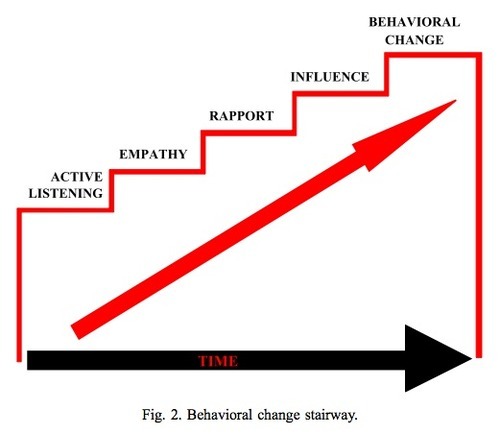7 Unconventional Behaviors Of Inspiring Leaders
Rich Hua stashed this in Leadership
Stashed in: Leadership!, Listen!, Leadership, WHY
Three favorites:
Shut Up
Have you ever been in a meeting when the most senior executive in the room have not spoken a word during the whole meeting? And I don’t mean because (s)he would be on a laptop or a mobile phone doing email. No, rather sitting in the room intently listening to the very important strategic discussion. No? Well, I have. And I have to tell you – it is both a little creepy and awe-inspiring at the same time.
Malcom Forbes once said: “The art of conversation lies in listening.” Some of the best leaders make it a point to not have their opinions heard right off the bat, but rather sit back and truly listen to what their teams have to say, maybe occasionally asking a question or two. You can get some amazing insights and inspire some great ideas just by sitting there and not contradicting (or agreeing, for that matter) with the opinions of others. Those leaders tell me that it is very hard to do, but tremendously rewarding to exercise this every now and then.
Intentionally seek diversity
We’ve all seen managers surround themselves with “yes” people. We’ve all seen favoritism in our careers – after all, it is human nature to like those that look/speak/dress like us. But exceptional leaders go outside of their comfort zones in recruiting their teams, they intentionally seek diversity of opinions/ages/genders/perspectives/experiences. They don’t want to build an army of “yes” men and women, they want to innovate and evolve. And one can’t do that withoutthe benefits of diversity.
George S. Patton said, “If everyone is thinking the same, then someone isn’t thinking.” That’s something true leaders try to avoid by building and developing diverse teams.
Invite naiveté
Great leaders are also great innovators. And they know that curiosity and naiveté are critical conditions of innovation. They are humble enough to accept if they don’t know something and smart enough to constantly learn throughout their career.
But they are also sharp enough to know that times change and that no one person can know everything. They ask “why?” and “why not?” constantly, and are always open to reverse mentorship with younger generations realizing that there are some things younger professionals are just smarter about.











9:29 PM Feb 04 2014